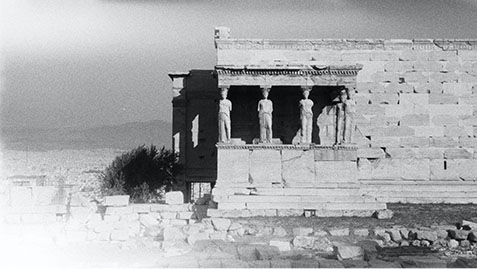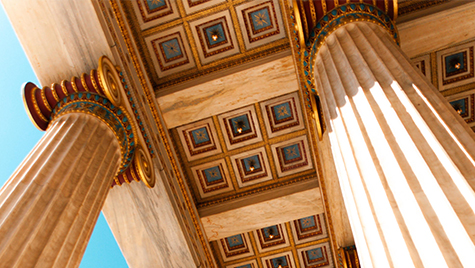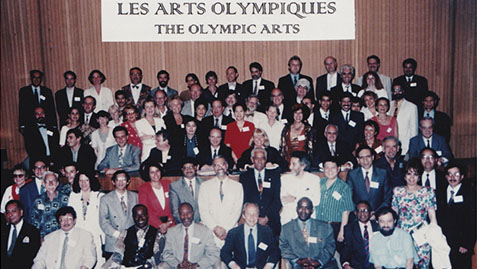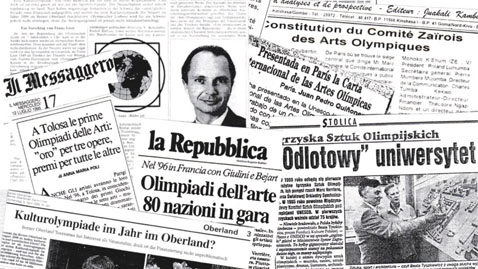What we do
About us
About Funds
Language
CN
EN
FR

WOAC IN ANCIENT GREECE
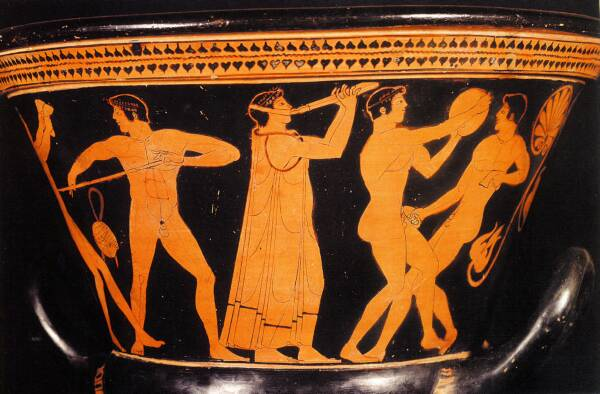
In the ancient games of Olympia, art and music were always a feature. The Olympia festivals attracted large crowds of spectators and were, therefore, an ideal occasion for musicians, writers and other artists to present their talents. The cooperation of some musicians was necessary for a smooth conduct of the games: trumpeters and heralds addressed the spectators. Moreover, music accompanied the pentathlon, in particular the long jump, because the Greeks thought that music improved the coordination of the movements.
At some games, contests in music and similar arts formed a separate part of the program, on a par with athletic contests. These were called 'musical contests' after the muses, goddesses of arts such as music, literature and drama. In the Olympic games, the contests for heralds and trumpeters were regular to be seen. In other games such as Delphi, playing the kithara (a kind of lyre, with vertical strings of equal length), the combination of kithara and singing, and playing the aulos (a wind instrument with a mouthpiece in reed). In the Hellenistic period, other events were added: writing poetry and prose and competitions for tragic and comic actors. At the Capitolia in Rome, there were contests in declamation, prose and poetry for both Greek and Latin.
The musical contests served not only as a foil to the athletic contests, but more often than not, a way for artists to express and to nourish the mind of the Greek people. Together with sports, the Art Olympiad provided entertainment for tens of thousands of spectators each day, and were genuinely the first event in human history to bring art to the mass.
At some games, contests in music and similar arts formed a separate part of the program, on a par with athletic contests. These were called 'musical contests' after the muses, goddesses of arts such as music, literature and drama. In the Olympic games, the contests for heralds and trumpeters were regular to be seen. In other games such as Delphi, playing the kithara (a kind of lyre, with vertical strings of equal length), the combination of kithara and singing, and playing the aulos (a wind instrument with a mouthpiece in reed). In the Hellenistic period, other events were added: writing poetry and prose and competitions for tragic and comic actors. At the Capitolia in Rome, there were contests in declamation, prose and poetry for both Greek and Latin.
The musical contests served not only as a foil to the athletic contests, but more often than not, a way for artists to express and to nourish the mind of the Greek people. Together with sports, the Art Olympiad provided entertainment for tens of thousands of spectators each day, and were genuinely the first event in human history to bring art to the mass.
Contact Us
contact@olymparts.org
What we do
Young Artists Support Program
WOAC Annual Awards Ceremony
The Objectives of WOAC
The Future We Aim To Achieve
About us
Who we are
The Establishment of WOAC
The WOAC Organizational Structure
The Development of WOAC
What we do
About us
About Funds
Contact Us
contact@olymparts.org
© Copyright 1995-2026. All rights reserved.




